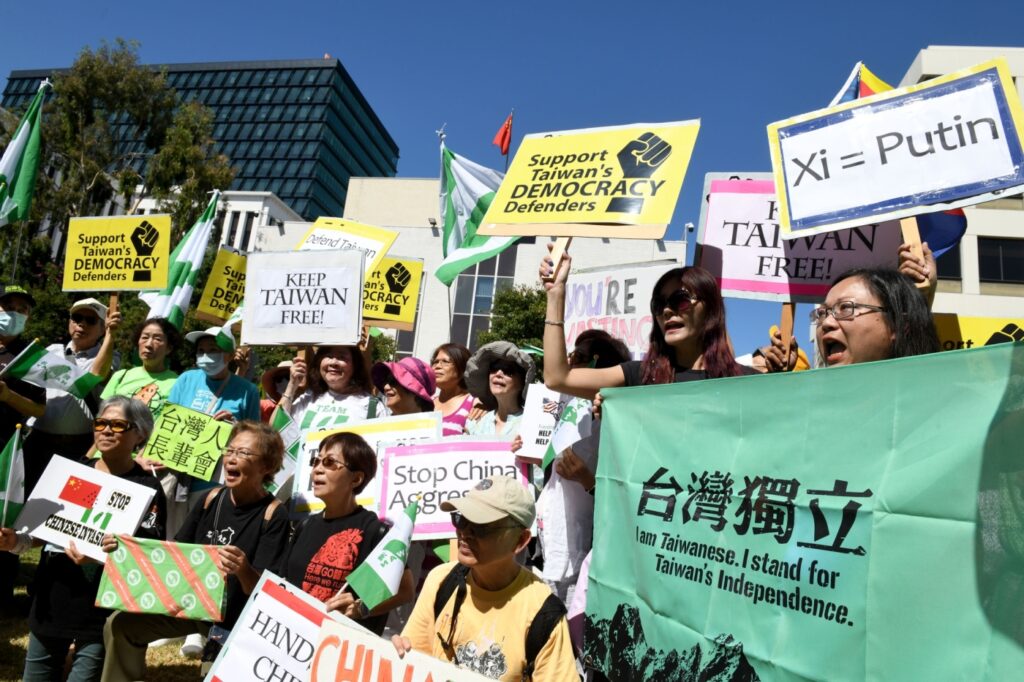
I just returned from a bipartisan Congressional delegation trip to the Indo-Pacific, led by House Foreign Affairs Committee Chairman Michael McCaul. As Chairwoman of the Indo-Pacific Subcommittee, it was important that my first trip to Asia in this role included visits to our closest allies and partners in the region: Japan, South Korea, and Taiwan.
The message from our meetings with defense and government leaders was loud and clear: our allies are worried about Chinese Communist Party (CCP) aggression towards Taiwan, and that the United States must be doing more to rally our allies to support Taiwan. Taiwan wants peace and freedom, and they are taking the threats of military force by CCP Chairman Xi Jinping very seriously.
The United States must do the same and promote peace through strength by keeping our promises and delivering backlogged U.S. arms sales to our Indo-Pacific allies and partners, including the more than $19 billion worth of equipment to Taiwan, before it’s too late.
Both rhetoric and actions by the CCP leaders and the People’s Liberation Army (PLA) have shown their determination to maintain their claim over Taiwan and become the world’s top superpower.
During the National People’s Congress in March, Chairman Xi threatened regarding Taiwan that the Chinese government “will never promise to renounce the use of force and we reserve the option of taking all actions necessary.”
Last year the CCP treated Speaker Pelosi’s visit to Taiwan as a provocation, responding with the PLA conducting an exercise showcasing its ability to conduct a blockade of Taiwan and cut off access to the Taiwan strait, which nearly half of the world’s container ships pass through annually, and often carry critical technologies that the global economy relies on.
We saw a similar response from Taiwan President Tsai Ing-Wen’s meeting with Speaker McCarthy last week. Following their meeting, and while our delegation was in Taiwan, the PLA rehearsed an encirclement of Taiwan during three days of military drills with 71 Chinese military planes and ten ships crossing the Taiwan Strait median line, according to the Taiwanese Defense Ministry. The CCP called the operation “a stern warning.”
Our delegation was also greeted by three Chinese fighter vessels as we landed in Taiwan. My office and many others received emails and calls from the Chinese embassy demanding that we not visit Taiwan.
The Taiwanese are increasingly nervous about the CCP’s rhetoric and interference in domestic politics, the PLA’s increasingly aggressive and erratic encounters with its military in international and territorial waters, and its ability to deter and defend against a possible attack.
With heightened CCP aggression, the need to support our freedom-loving allies in the Indo-Pacific is more important than ever. However, the United States is failing to keep our promises and deliver Congressionally approved arm sales on a timeline that would equip Taiwan to defend itself against or deter an attack.
In the 117th Congress, I led the Arms Export Delivery Solutions Act with Chairman McCaul, which requires the Department of State and the Department of Defense to report to Congress on the number of backlogged arms sales to Taiwan, South Korea, Japan, Australia and New Zealand. It also requires the agencies to provide explanations for delays, actions they are taking to eliminate the arms sales backlog and authorities that could be used to expedite arms sales to the region.
This bill was signed into law through the FY23 National Defense Authorization Act in December 2022 and requires two annual reports: one in March 2023 and one in March 2024. We are now in the month of April, and the House Foreign Affairs Committee has yet to receive the report from the Biden administration that was due last month on the status of backlogged arms sales.
The backlog began before this administration took office, and the administration has announced several rounds of new weapons sales to Taiwan. However, I fear the administration is missing the point and prioritizing positive messaging over good policy and the gravity of this moment. The announced sales could take eight years to fulfill if delivered at the current pace of deliveries, and this is on top of the backlogged sales that have not been delivered or even accounted for by the Biden administration to Congress.
If we do not address the backlog, Taiwan will not receive the necessary weapons to deter or defend against an attack.
We are running out of time to keep our promises. Authoritarian regimes want to destroy our values and erode democracy abroad until the United States has no patterns or allies to turn to. This is why we must ensure that Taiwan and allies in the region are delivered the weapons they ordered as quickly as possible. As Chairwoman of the Indo-Pacific Subcommittee, I am committed to holding this administration accountable to its promises and ensuring the United States leads from a position of strength. We cannot be deterred, and we must deliver.
Young Kim serves in the U.S. House of Representatives.
